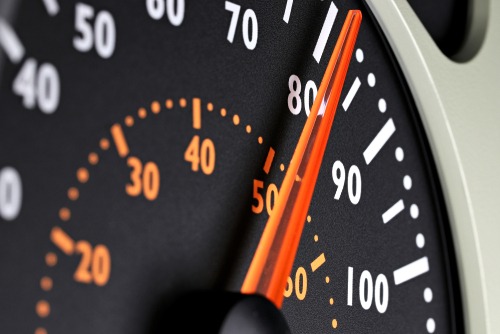
The Owner-Operator Independent Drivers Association (OOIDA) is calling on the U.S. Department of Transportation to reject a speed limiter proposal suggested by the American Trucking Association and Road Safe America.
In a letter to U.S. Transportation Secretary Pete Buttigieg, OOIDA said a National Highway Traffic Safety Administration/Federal Motor Carrier Safety Administration (NHTSA/FMCSA) Notice of Proposed Rulemaking (NPRM) mandating heavy-duty commercial vehicles have speed limiting devices would make roads less safe.
“This 2016 NPRM would not only fail to improve safety and likely lead to more crashes involving CMVs but would provide large carriers an even greater competitive advantage over small businesses. We are adamantly opposed to any proposals that would create a separate nationwide speed limit for CMVs,” the group wrote. “By establishing a one-size-fits-all federal mandate, the 2016 NPRM would create dangerous speed differentials between CMVs and other vehicles. Decades of highway research shows greater speed differentials increase interactions between truck drivers and other road users. Studies have consistently demonstrated that increasing interactions between vehicles directly increases the likelihood of crashes.”
The group said that speed limiters create operational challenges and dangers for truckers, including challenges navigating merges and the increased incidents of road rage in other drivers. Limiting speeds on trucks causes increased pressure and stress on truckers, the group said, because they would be required to drive the maximum number of hours to make up for slower speeds.
The group said NPRM would also give large trucking companies a competitive advantage over smaller, independent businesses and owner-operators.
“Any efforts to mandate speed limiters will take more control of the truck out of the driver’s hands and unnecessarily constrain small businesses,” the letter said. “There are countless scenarios where a driver’s expertise and discretion is needed to avoid an accident or other dangerous situations, but their abilities would be arbitrarily curtailed by speed limiters. Rather than mandating speed limiters and unproven technologies, the most efficient and cost-effective means to promote safer roads is simply enforcing existing speed limits, which Congress authorized states to set based on their own unique factors. We believe DOT and Congress should consider measures that would actually improve safety rather than technologies that have been proven to cause more crashes.”